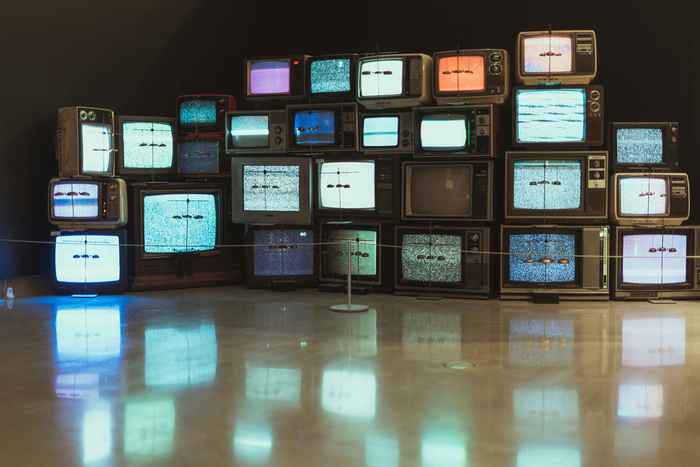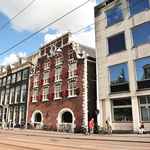Re-Thinking Media Conglomerates
- Date
- 16 May 2025
- Location
- University Library
- Room
- Belle van Zuylenzaal

The increasing relevance of social media platforms as oligopolistic infrastructures of industry and politics has a deeper genealogy that informs the way capitalism, democracy and their interrelation are conceptualized today. In this lecture/masterclass with Kit Hughes we look back at how television was harnessed by the industry to create partnerships, to distribute information and to demonstrate power and access. Next to broadcast TV this also involves the installment of alternative, closed circuit and logistical television assemblages with the aim of redefining and repurposing concepts like identity and justice, liability and obligation, capitalism and democracy.
14:30-16:00
Lecture: Another Conservative Media Conglomerate? The US Chamber of Commerce Sells Influence and Access in American Politics (1975-1997)
In this presentation, I will detail Chamber President Dick Lesher’s (1975-1997) attempts to transform the U.S Chamber of Commerce into “a media conglomerate” (his words). To detail the history of the U.S Chamber of Commerce is to provide an overview of the major contours of American business and economic history during the twentieth and twenty-first centuries. As scholars have noted, the Chamber played a key role in struggles over the shape of the U.S. regulatory apparatus, government responsiveness to citizen demands, employer-labor relations, and a range of specific policy issues on topics like taxes, energy, deficit spending, and free trade. However, missing in these accounts is an understanding of the Chamber as a sophisticated media apparatus.
This lecture will focus on the Chamber’s development of BizNet, television operations that included producing news and public affairs series for broadcast and cable outlets (including ESPN), international videoconferences with U.S. trade partners, live-by-satellite town halls with politicians, interactive meetings, educational seminars, and “grassroots” lobbying events. Certainly, the cross-institutional televisual circuits that the Chamber built—linking partners, distributing information, demonstrating power and access—intervened directly in narrow policy issues. However, in integrating popular and institutional audiences, the Chamber also hoped to achieve its vision for transforming the world by redefining and repurposing concepts like identity and justice, liability and obligation, capitalism and democracy—all longstanding concerns of television studies. In tracing these complex circuits of televisual practice, I argue that we must duplicate institutions’ agnostic and simultaneous embrace of the medium’s myriad forms—logistical and textual, broadcast and closed-circuit, commercial and non-profit, delightful and boring—to understand television’s historical and present capacity to constitute everyday life.
16:15-18:00
Masterclass
Guided by a close reading of two texts, the masterclass will aim at a conceptual understanding of the productive relation between media technologies and industrial politics.
Readings:
Jodi Dean: Democracy and Other Neoliberal Fantasies (Chapter 1 "Technology: The Promises of Communicative Capitalism")
Kit Hughes: “The True Meaning of Christmas (at Hallmark): The Miracle of the Small Business Owner”
Kit Hughes is Associate Professor of Film and Media Studies at Colorado State University. She specializes in useful and workplace media, economic education, and histories of technology. Her book, Television at Work (Oxford University Press, 2020) explores how American business developed workplace television as a medium of industrial efficiency, ideological orientation, and corporate expansion. More recently, her research on NYSE educational film, public television consumer programming, and the tech industry's promotion of datafied managerialism and employee wearables in the context of professional basketball asks where our ideas about the economy come from, how they circulate, and how they impact our world.
Credits
1 ECTS – reading preparation, active participation in the discussions, 800 word summary reflection (pass/fail)
The Cross-Media Seminar is organized by Sudeep Dasgupta, Abe Geil, and Markus Stauff. To register for the workshop and to receive the readings send an email to m.stauff@uva.nl
